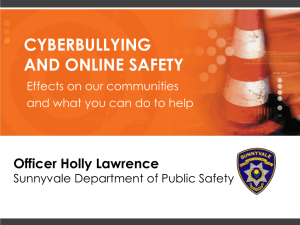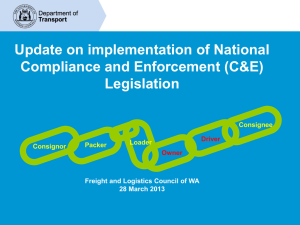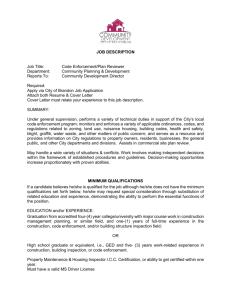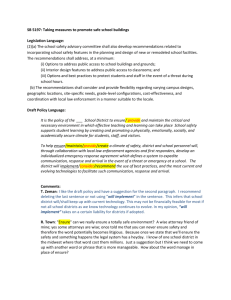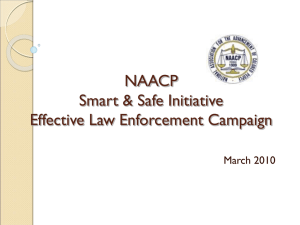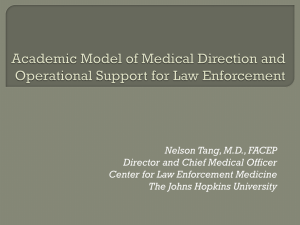BASW 452 - Jan.ucc.nau.edu - Northern Arizona University
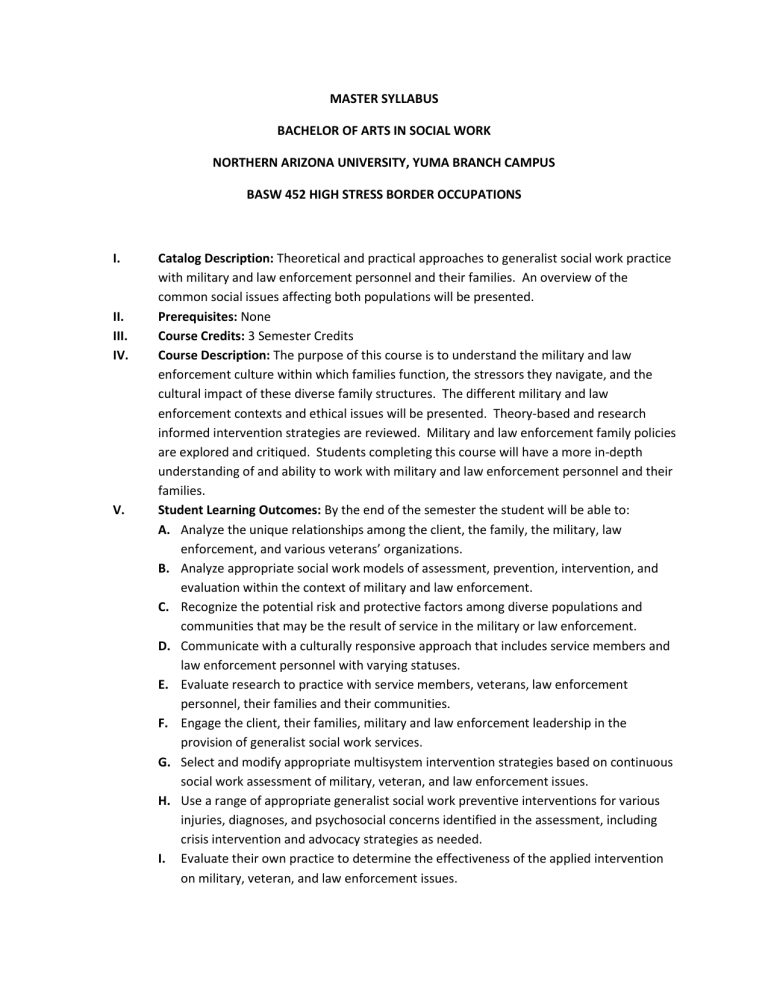
MASTER SYLLABUS
BACHELOR OF ARTS IN SOCIAL WORK
NORTHERN ARIZONA UNIVERSITY, YUMA BRANCH CAMPUS
BASW 452 HIGH STRESS BORDER OCCUPATIONS
I.
II.
Catalog Description: Theoretical and practical approaches to generalist social work practice with military and law enforcement personnel and their families. An overview of the common social issues affecting both populations will be presented.
Prerequisites: None
III.
Course Credits: 3 Semester Credits
IV.
Course Description: The purpose of this course is to understand the military and law enforcement culture within which families function, the stressors they navigate, and the cultural impact of these diverse family structures. The different military and law enforcement contexts and ethical issues will be presented. Theory-based and research informed intervention strategies are reviewed. Military and law enforcement family policies
V.
are explored and critiqued. Students completing this course will have a more in-depth understanding of and ability to work with military and law enforcement personnel and their families.
Student Learning Outcomes: By the end of the semester the student will be able to:
A.
Analyze the unique relationships among the client, the family, the military, law enforcement, and various veterans’ organizations.
B.
Analyze appropriate social work models of assessment, prevention, intervention, and evaluation within the context of military and law enforcement.
C.
Recognize the potential risk and protective factors among diverse populations and communities that may be the result of service in the military or law enforcement.
D.
Communicate with a culturally responsive approach that includes service members and law enforcement personnel with varying statuses.
E.
Evaluate research to practice with service members, veterans, law enforcement personnel, their families and their communities.
F.
Engage the client, their families, military and law enforcement leadership in the provision of generalist social work services.
G.
Select and modify appropriate multisystem intervention strategies based on continuous social work assessment of military, veteran, and law enforcement issues.
H.
Use a range of appropriate generalist social work preventive interventions for various injuries, diagnoses, and psychosocial concerns identified in the assessment, including crisis intervention and advocacy strategies as needed.
I.
Evaluate their own practice to determine the effectiveness of the applied intervention on military, veteran, and law enforcement issues.
VI.
Course Materials: Rubin, A., Weiss, E.L., Coll, J.E. (2013). Handbook of military social work.
Hoboken, NJ: John Wiley & Sons, Inc. Additional reading packets or access to the Internet may also be required.
VII.
Teaching Methods: Each class will include presentation of content, discussion, and student centered learning activities. Additionally, there will be quizzes, guest speakers, videos,
Internet assignments, and group projects. Student participation is integral to learning the course material.
VIII.
Evaluation Tools: Student learning outcomes will be evaluated by the following methods:
A.
Individual Quizzes: All students are responsible for the content of the required readings listed in the course syllabus. Throughout the semester there will be four (4) quizzes covering these course readings. Due dates will be posted on the course calendar and taken in Bb Learn.
B.
Topic In-Class Presentation: Students will be assigned to a group to research on a topic relating to military and law enforcement families. They will then present to the class on their topic area, which will be selected in the first class session. The in-class presentation should include the use of PowerPoint and the student presenters should lead a discussion on this topic are for 30 minutes. The use of experiential exercises such as role plays or the use of case vignettes to demonstrate the family-based intervention is encouraged.
C.
Case Based Assignment – Military/Law Enforcement Family Vignette: Students will submit a 12 page scholarly paper related to a military or law enforcement family case.
Students will be expected to discuss:
1.
Discussion of the relevant descriptive features of the case, relating to a theoretical framework(s) discussed in class or from the students readings and research
2.
Provide an analysis, referencing these theories, indicating the contextual and personal factors that hare most relevant for explaining the problem and planning a generalist social work practice response to it.
3.
Provide a discussion of a family based intervention approach (evidence-based if possible).
4.
Discuss any legal, ethical, and policy issues impacting the case.
5.
Provide community and military specific resources and referrals.
6.
Discuss diversity related issues associated with the case.
IX.
Course Content:
A.
The culture and diversity of the military and law enforcement
B.
Women in the military and law enforcement
C.
Posttraumatic stress disorder in veterans and law enforcement
D.
Traumatic brain injury in the military
E.
Suicide in the military
F.
Homelessness among veterans
G.
Cycles of deployment and family well-being
H.
Grief, loss, and bereavement in military and law enforcement families.
I.
Interventions for military children and youth.
